
Borussia Dortmund, founded on December 19, 1909, in Dortmund, North Rhine-Westphalia, is one of Germany’s most iconic and successful football clubs. Known for its vibrant yellow and black colours, the club competes in the Bundesliga, the top tier of German football, and has a long-standing reputation as one of the country’s elite teams. Dortmund's footballing journey is intertwined with intense rivalries, particularly with Schalke 04 in the famous Revierderby, a clash of two giants from the Ruhr region. Another significant rivalry is with Bayern Munich, which results in the highly anticipated Der Klassiker. These rivalries have made Borussia Dortmund a force in German football, adding to the excitement and drama that surrounds their matches.

Over the years, Borussia Dortmund has accumulated an impressive collection of major trophies. The club has won eight Bundesliga titles, with the most recent victories in 2010–11 and 2011–12, marking the pinnacle of their domestic success in the modern era. Dortmund has also triumphed in the DFB-Pokal (German Cup) five times, with notable victories in 2016–17 and 2020–21. Internationally, Borussia Dortmund’s UEFA Champions League triumph in 1997 remains one of the club’s crowning achievements. In addition, they won the European Cup Winners’ Cup in 1966, and the Intercontinental Cup in 1997, further solidifying their global footballing stature. Despite facing tough competition, Dortmund has often performed admirably on the European stage, finishing as runners-up in 2013 and 2024 UEFA Champions League finals.

Borussia Dortmund’s home is the Signal Iduna Park, the largest football stadium in Germany, with a capacity of over 81,000 spectators. Known for the electrifying atmosphere created by the passionate supporters, the Yellow Wall – the stadium's iconic southern terrace – is the largest standing terrace in Europe. The atmosphere in this stadium is legendary, making it one of the most intimidating venues for visiting teams. Dortmund has a rich tradition of developing young talent, and its academy system plays a crucial role in shaping the club’s future. The club has produced numerous top-tier players who have made significant impacts both for Dortmund and at the international level.
This focus on youth development is a key part of Borussia Dortmund’s identity, with the club constantly striving to produce world-class players through its youth academy. The club’s commitment to excellence is also reflected in its management and philosophy, particularly under the stewardship of individuals like Michael Zorc, who played a key role in spotting and nurturing young talent during the 2010s. This vision has propelled the club back to the top of German football after a period of financial struggles in the early 2000s.

Dortmund is renowned for its loyal and passionate fanbase, known as the "Yellow Army", who support the club through thick and thin. The club enjoys a massive following both in Germany and internationally, particularly in countries like Turkey, South Korea, and the United States, where the club’s exciting football and commitment to youth development resonate with global fans. The club is also deeply involved in various community projects, regularly contributing to charitable initiatives and social causes. The Signal Iduna Park is more than just a stadium for Borussia Dortmund – it is the heart of the club’s identity. The stadium’s capacity makes it the largest in Germany, and it’s often regarded as one of the most intimidating places for opposing teams. Its vibrant atmosphere, especially in the Yellow Wall, adds to the mystique of Borussia Dortmund’s legendary home ground.

Despite its challenges, Borussia Dortmund has also proven to be a financial powerhouse. In recent years, the club has ranked among the top clubs in terms of revenue, standing as the second-highest revenue generator in Germany and among the top 15 in the world according to Deloitte's Football Money League. The club's financial health, alongside its strong membership base of over 218,000 members, provides it with the stability needed to remain competitive at the highest level. Dortmund has faced various challenges throughout its history, including periods of financial instability and relegation in the early 1970s, but each time, the club has shown remarkable resilience. The team's comeback and eventual success, particularly in the 1990s and 2000s, is a testament to the unwavering spirit of the club and its ability to bounce back from adversity.

Today, Borussia Dortmund continues to thrive as a global footballing icon, balancing tradition with modernity. Their success on the field, their intense rivalries, and their loyal fans make them a formidable force in both German and European football. With a proud history, an eye for developing young talent, and a world-class stadium, Borussia Dortmund remains one of the most prestigious and successful football clubs in Europe. The future looks bright for this iconic club, as they continue to strive for new achievements and create unforgettable memories for their passionate supporters.
Founding and Early Years
Borussia Dortmund was founded on December 19, 1909, by a group of 18 young men in the city of Dortmund, North Rhine-Westphalia. The club was born out of a desire for independence, as the founding members were dissatisfied with their previous football involvement under the guidance of the local Catholic church. The name "Borussia" is derived from the Latin name for Prussia, but it was also inspired by a local brewery’s beer, Borussia, which helped give the club its identity.
In its early years, the team competed in local leagues, initially sporting blue and white shirts with a red sash. However, in 1913, Borussia Dortmund adopted the now-iconic yellow and black striped shirts, which would become their defining colours. The club's fan base grew rapidly, and Dortmund started to establish itself as a force in regional football.

The First National Titles and the Pre-War Years
During the 1920s, Dortmund enjoyed moderate success in local football, but financial troubles almost led to the club's collapse in 1929. An attempt to boost the club's fortunes by signing paid professional footballers backfired, leaving the team in significant debt. Fortunately, a local supporter came to their rescue, and Borussia Dortmund survived, continuing to play in regional leagues.
The 1930s were challenging due to the rise of the Third Reich, which heavily influenced German football. Borussia Dortmund’s president was forced to step down for refusing to join the Nazi Party, and some club members secretly produced anti-Nazi pamphlets, which led to executions in the closing days of World War II. Despite these political upheavals, Dortmund’s football team found success in regional competitions during this time, and the foundation for the club’s future rivalries with Schalke 04 was laid.

After World War II, Borussia Dortmund was dissolved by the Allied occupation forces, in line with the efforts to distance Germany from its Nazi past. The club was briefly reformed in a merger attempt with other local teams, but eventually returned to its original form as Ballspielverein Borussia (BVB). Their first appearance in the national league final was in 1949, although they lost to VfR Mannheim in a tight match.
Rise to Prominence in the 1950s and 1960s
The 1950s marked the beginning of Borussia Dortmund’s rise to prominence in German football. In 1956, Dortmund claimed their first national title with a 4–2 victory over Karlsruher SC, followed by another league title in 1957. They went on to win a third in 1963, securing their place in history as one of Germany’s most successful clubs at the time.
The club’s international breakthrough came in 1966, when Dortmund won the European Cup Winners’ Cup, defeating Liverpool 2–1 in extra time. This victory solidified Borussia Dortmund's place in European football, and the following year, they finished runners-up in the Bundesliga. Dortmund was also part of the founding teams in the newly established Bundesliga in 1963 and earned a spot as one of the competition’s top clubs.
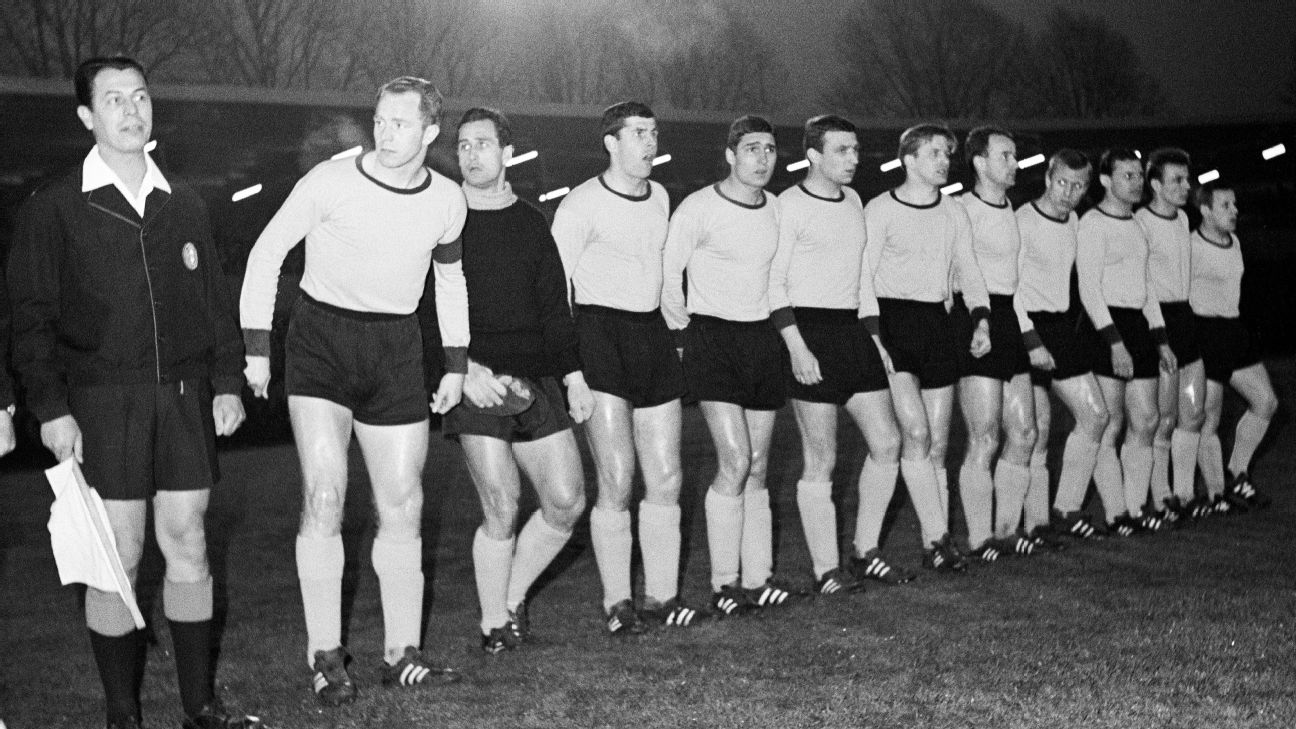
The 1970s: A Period of Decline and Resilience
The 1970s were less kind to Borussia Dortmund. Financial instability led to a significant downturn in the club's fortunes. Dortmund was relegated from the Bundesliga in 1972, but they made a strong return to Germany’s top league by 1976. Despite relegation struggles, the club achieved one of its long-term goals during this time by opening the Westfalenstadion (now Signal Iduna Park) in 1974, which would become one of the most iconic stadiums in world football.
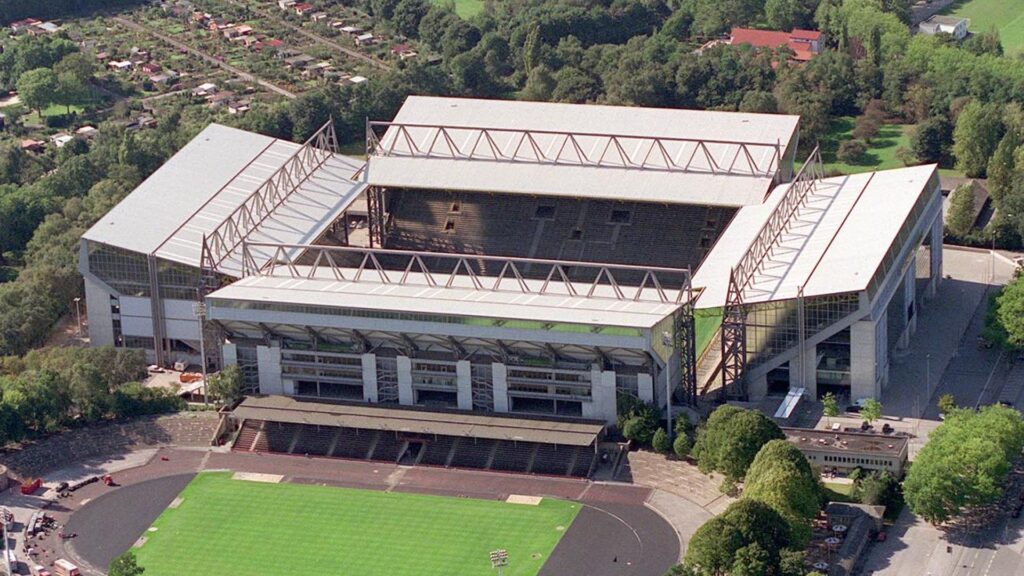
The 1980s: Financial Struggles and Early Recovery
The 1980s continued the club’s trend of financial difficulties, and Dortmund found itself fighting relegation again in 1986, barely avoiding the drop to the second division. However, there were moments of success, such as their DFB-Pokal victory in 1989, where they triumphed 4–1 over Werder Bremen in the final. This period also marked Dortmund’s first DFL-Supercup win in 1989, when they beat rivals Bayern Munich 4–3.

The 1990s: A Golden Era of Success
The 1990s marked the golden era of Borussia Dortmund. After a disappointing start to the decade, the club hired Ottmar Hitzfeld as manager in 1991, and the results were immediate. Dortmund won back-to-back Bundesliga titles in 1995 and 1996, a significant achievement that put the club at the forefront of German football. During this period, Dortmund also won the DFL-Supercup in 1995 and 1996.
The pinnacle of their success came in 1997, when Borussia Dortmund won the UEFA Champions League for the first time in their history, defeating Juventus 3–1 in a memorable final. This victory was followed by an Intercontinental Cup win against Cruzeiro, confirming Dortmund’s position as world champions. Under Hitzfeld’s leadership, the club experienced unparalleled success, including reaching the Champions League semi-finals in 1998.

The 2000s: Financial Woes and a Slow Decline
The early 2000s saw Borussia Dortmund face financial turmoil once again. Poor financial management, coupled with failed investments and a lack of success on the field, led to the club’s debt reaching alarming levels. Dortmund was forced to sell several key players to stay afloat, and in 2005, the club was on the brink of bankruptcy.
However, Borussia Dortmund found a way back, with Hans-Joachim Watzke being appointed as CEO in 2005. Under Watzke's leadership, the club was able to recover financially and rebuild its reputation. In 2002, Dortmund finished as Bundesliga runners-up once again, although they lost the UEFA Cup final to Feyenoord.
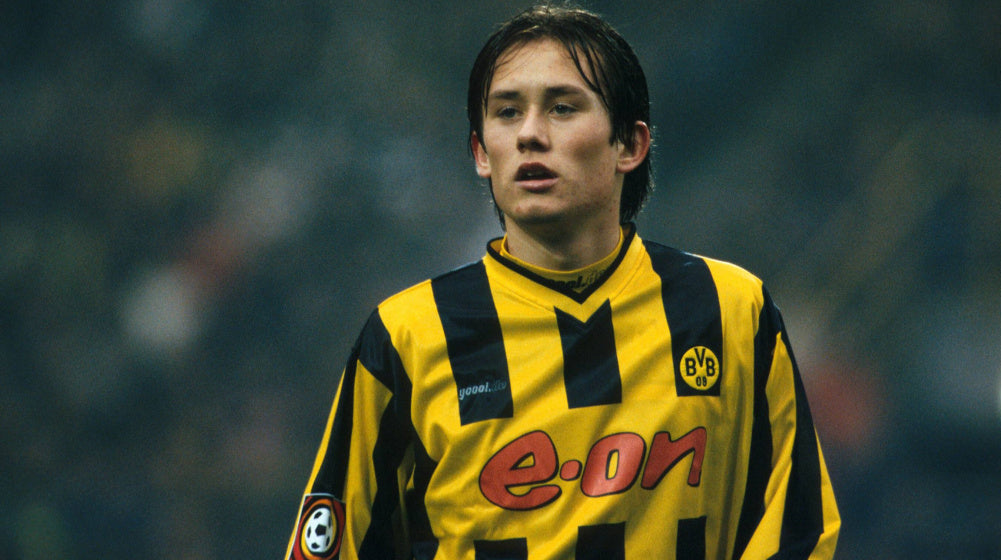
The 2010s: A New Era Under Jürgen Klopp
The arrival of Jürgen Klopp as manager in 2008 marked a turning point for Borussia Dortmund. Klopp, known for his dynamic and high-pressing style, rejuvenated the club and led them to the Bundesliga title in 2010–11, ending Bayern Munich’s dominance. The following season, Dortmund successfully defended their title and won the DFB-Pokal in a historic 5–2 victory over Bayern Munich, securing the first-ever league and cup double in the club’s history.
In 2013, Dortmund reached the UEFA Champions League final under Klopp’s guidance, where they faced Bayern Munich in an all-German final at Wembley Stadium. Despite an intense match, Dortmund lost 2–1, but their performance in Europe solidified their reputation as one of the top clubs in Germany.

The Post-Klopp Era and Continued Success
After Klopp’s departure in 2015, Thomas Tuchel and later Peter Bosz took charge, each continuing the tradition of exciting football. Dortmund’s focus on youth development and international success remained central to the club’s philosophy. In 2017, the club won the DFB-Pokal under Tuchel, defeating Eintracht Frankfurt 2–1 in the final.
In recent years, Dortmund has continued to compete at the highest level, consistently finishing near the top of the Bundesliga and remaining a strong contender in European competitions. The emergence of Erling Haaland in 2020 marked a new chapter in the club’s attacking prowess, with the Norwegian striker becoming one of the most sought-after players in world football.

2020s: A Resurgence in Europe
Dortmund’s success has continued into the 2020s, with the club reaching the Champions League final once again in 2024, though they lost to Real Madrid. Despite some setbacks, including the sale of Jude Bellingham to Real Madrid, Dortmund’s youth academy continues to produce world-class talent, and the club remains a European powerhouse.

Ownership Structure
The ownership of Borussia Dortmund follows a unique structure that blends member-based governance with modern corporate practices. The club is predominantly owned by its members, known as sócios in Portuguese, who play a key role in the governance and direction of the club. This structure allows Borussia Dortmund to maintain its democratic roots while adopting modern business strategies to ensure financial sustainability.
Management and Governance
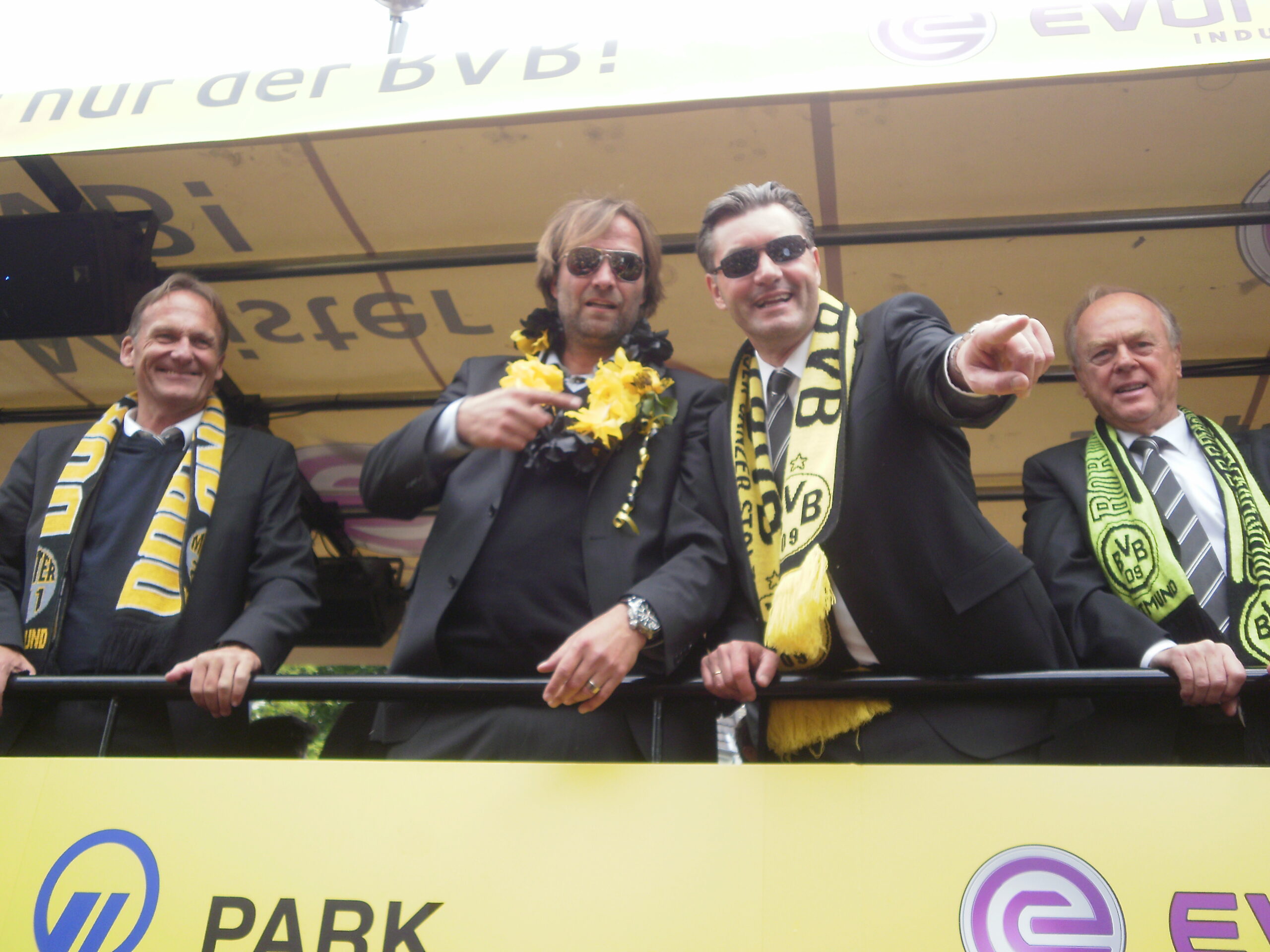
Financial Structure and Investments
Borussia Dortmund’s financial structure is designed to generate revenue across several channels, ensuring the club’s sustainability and growth in European football.
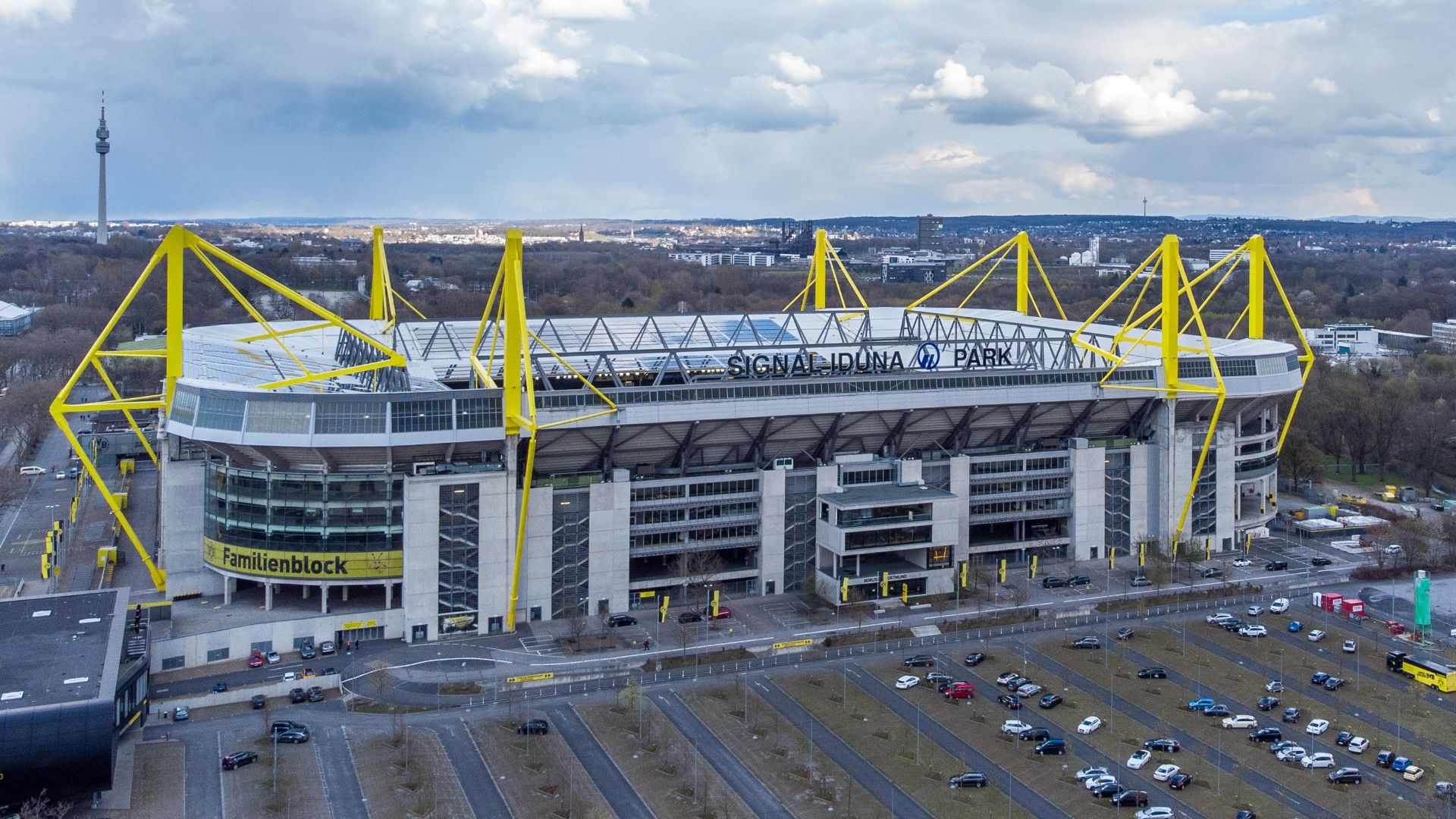
Youth Development and Infrastructure
Borussia Dortmund places great emphasis on youth development through its state-of-the-art training facilities. The club’s Hohenbuschei Training Centre, located in the district of Brackel, is one of the best football training grounds in Europe. The facility includes various sports science areas such as physiotherapy rooms, rehabilitation equipment, and fitness areas. It also houses classrooms and conference rooms for staff development and meetings.
Dortmund’s youth academy, known as the BVB Evonik Football Academy, consistently produces top-tier talent who later go on to play for the senior team or other top clubs. The club’s focus on nurturing young talent and providing them with the resources to succeed has ensured that Borussia Dortmund remains at the forefront of European football development.
In addition to the training centre, Borussia Dortmund also focuses heavily on youth outreach programs. Through their initiatives, the club encourages local talent to pursue football and helps develop young players who can later contribute to the senior squad.

Borussia Dortmund, established on December 19, 1909, is one of the most iconic and successful football clubs in Germany and Europe. Founded in Dortmund, North Rhine-Westphalia, the club is known for its distinct yellow and black colours, a passionate fan base, and its strong traditions. Borussia Dortmund has achieved substantial success both domestically and internationally, making them a household name in world football. Below is an extensive list of the club’s major honours and achievements.
Domestic Trophies
Bundesliga (German Top Division) Titles – 8 Titles
DFB-Pokal (German Cup) Titles – 5 Titles
DFL-Supercup (German Super Cup) Titles – 6 Titles
Revierderby Victories (Against Schalke 04) – 27 Titles (most wins in this intense regional rivalry)
International Trophies
UEFA Champions League Titles – 1 Title
1996–97 (Defeated Juventus 3–1 in the final)
UEFA Cup Winners' Cup Titles – 1 Title
1965–66 (Defeated Liverpool 2–1 in the final)
Intercontinental Cup Titles – 1 Title
1997 (Defeated Cruzeiro 2–0 in the final)
Other Notable Achievements
UEFA Champions League Runners-Up – 2 Times
2013 (Lost to Bayern Munich 2–1 in the final)
2024 (Lost to Real Madrid 2–0 in the final)
Bundesliga and DFB-Pokal Double – 2 Titles~
Bundesliga and DFL-Supercup Double – 2 Titles
Trebles (Bundesliga, DFB-Pokal, DFL-Supercup) – 1 Title
Honours and Records
German Orders:
German Records:
European Records:
All-time European Competitions Records:
Books
Websites
Articles
Interviews and Documentaries


Becoming a leading global provider of digital solutions and services for the sports industry, enabling our clients to achieve their goals and reach their full potential.
We aspire to be a trusted partner and advisor to our clients, leveraging our expertise and passion for sports to help them succeed in a rapidly changing market.








